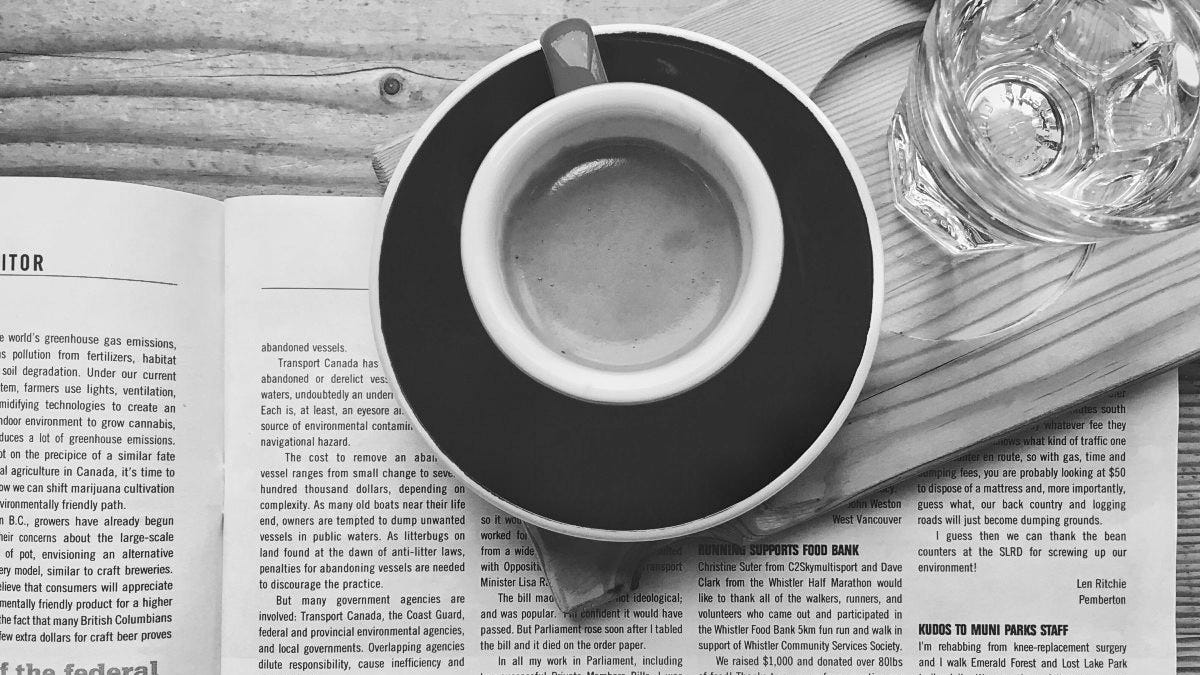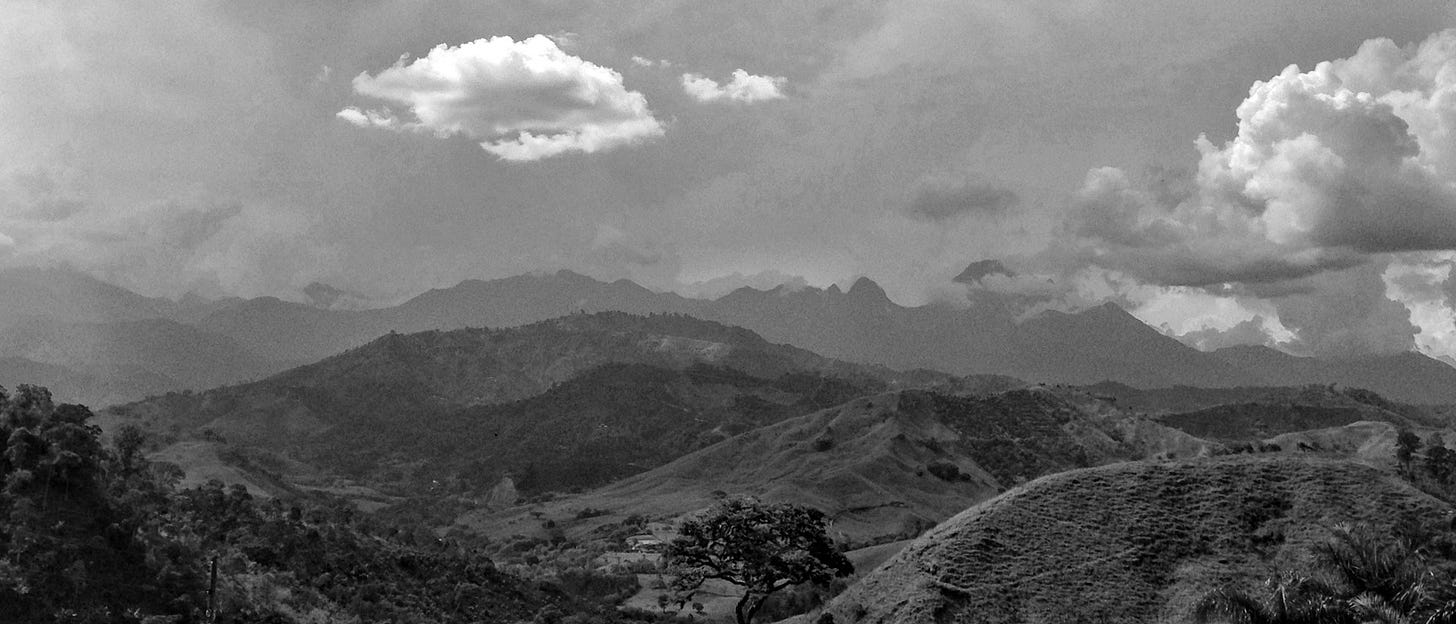Coffee News Roundup: Week Ending February 19th
Is coffee good for you? This week we'll find out (sort of. It's all very confusing).
Seriously, is coffee good for you? It’s an age-old question, and according to feedback from readers (i.e. my wife) it’s the most popular section of this roundup.
Therefore, this edition of the Coffee News Roundup is going to be a health-focused one, and not only because there isn’t much other news to report.
It’s a bit of a rollercoaster this week, but let’s begin with the good news.
Coffee Drinking Tied To Lower Risk Of Heart Failure - via New York Times
“A large analysis looked at hundreds of factors that may influence the risk of heart failure,” the piece begins, “and found one dietary factor in particular that was associated with a lower risk: drinking coffee.”
This research was reported last week in places like Daily Coffee News and, subsequently, in this roundup, but the Times has taken a deeper look at the how it was conducted and that feels worthy of its own section.
Using machine learning, the research looked at decades of data from over 20,000 participants across three studies to “find meaningful patterns in large amounts of data.”
Senior author Dr. David P. Kao, an assistant professor of medicine at the University of Colorado, explained the reasoning behind using what I’m deciding to picture as Skynet-meets-The-Machine to parse all that data and find new information: “Usually, researchers pick things they suspect would be risk factors for heart failure—smoking, for example—and then look at smokers versus nonsmokers.” Machine learning, on the other hand, “identifies variables that are predictive of either increased or decreased risk, but that you haven’t necessarily thought of.”
Of all the dietary factors associated with heart failure, coffee drinking was associated most strongly with decreased long-term risk, although the researchers aren’t exactly sure how it helps. To that end, “We don’t know enough from the results of this study to recommend [drinking more coffee],” Kao said.
Well that’s no help. Maybe the next story will give more clarity?
Coffee May Contribute To Heart Disease, But Some Brews Are Better Than Others - via Bean Scene
Ah, no. An Australian study has found that too much coffee can increase your risk of cardiovascular disease. Very confusing.
You do have to drink a lot of coffee—six cups per day—for this to be an issue, but the study also mentions that “the correlation is both positive and dose-dependent, meaning the more coffee you drink, the greater the risk.”
The study, by researchers from the Australian Center for Precision Health at the University of South Australia, looked at genetic and phenotypic associations between coffee intake and plasma lipid profiles—that is, the amount of cholesterols and fats in the blood. High coffee intake, according to this study, “contributes to an adverse lipid profile” and hence, increases risk of heart disease.
Coffee also contains a cholesterol-elevating compound, cafestol, but at different levels depending on how the coffee is prepared.
According to Professor Elina Hyppönen, one of the researchers, what kind of coffee you drink is important in this case: “Cafestol is mainly present in unfiltered brews, such as French press, Turkish and Greek coffees,” as well as in espresso, she said. Filtered (pour-overs etc.) and instant coffees contain little to no cafestol, so Hyppönen says these are better choices if heart health is your thing.
Again, it should be noted that you have to drink a lot of coffee for this to matter, and as per usual the reporting doesn’t actually define what “six or more cups” actually is (a US cup is different from a UK cup is different from an Australian cup).
Drinking Coffee Impacts The Structure Of Your Brain, Study Finds - via BGR
Alright, now we’re getting into the more esoteric section of the “is coffee good for you” debate. A new study from Switzerland has found that regular caffeine consumption leads to reduced gray matter in the brain, especially in the region that manages memory.
That sounds bad.
However! These side effects are temporary, and they “don’t seem to impact memory” and the gray matter can be restored by staying away from caffeine for ten days.
“Our results do not necessarily mean that caffeine consumption has a negative impact on the brain,” said lead researcher Dr. Carolin Reichert from the University of Basel. “But daily caffeine consumption evidently affects our cognitive hardware, which in itself should give rise to further studies.”
So, what’s the point of this study, and why are we talking about it?
Good question, but at least the researchers said that coffee doesn’t impact sleep quality, so that’s something.
9 Out Of 10 Dentists Agree: You Should Brush Your Teeth Before Drinking Coffee - via Sprudge
The idea of brushing your teeth before your morning coffee might sound awful, but according to several dentists it’s much better for your teeth.
That’s because, per the story in Huffington Post reported on by Sprudge, the acidity in coffee can weaken your teeth’s enamel which can then be damaged by brushing. Meanwhile, if you brush beforehand, you’re cleaning off the plaque that coffee can adhere to and stain.
The dentists interviewed mention waiting half an hour after finishing your coffee before brushing, as that gives your mouth time to neutralize the pH and return to its normal state.
More Headlines
Partnership For Gender Equity Developing Gender Equity Index For The Coffee Industry
Coheed And Cambria Launch Their Own Coffee Brand
The Week In Corporate Coffeewashing
Nothing specific this week, but read this excellent article in Salon which interviews three people involved in the fight against corporate malfeasance and negligence in the commodity supply chain.
To give you a taste, here are a few choice quotes from Kaitlin Cordes, lead of Human Rights and Investment at the Columbia Center on Sustainable Investment:
“One of the things that's most depressing with coffee is that 50% of it is produced under certifications/labeling schemes, but a smaller percentage is actually purchased under that standard. That means farmers expend effort, time, and money to produce under that standard but there's no market for it.”
“The coffee price crisis over the last few years was so devastating for coffee producers. A huge amount of them were pushed into extreme poverty because of the incredibly low prices paid. There was increased child labor, worse working conditions, migration out of producer countries; people couldn't survive on coffee production anymore. The coffee sector was doing a lot of public hand wringing but not offering a lot of specific solutions. . .There are huge power asymmetries with powerful actors that manage to be incredibly profitable while saying they are unable to make any changes to how they do business.”
What I’m Drinking This Week
This week I’m using the fundraising function on Instagram to raise money for the West Texas Food Bank to help feed Texans who are still stuck in the middle of a humanitarian crisis. If you’d like to donate through my fundraiser, please do! It doesn’t seem to work on desktop, so if you’re not reading this on your computer you can give to them directly instead.
What To Read
A Major Launch? In This Pandemic? 4 Bay Area Companies Forging Ahead by Jenn Chen
Evolving The Concept Of Specialty Coffee, Part I: Green Coffee Quality by Spencer Turer
Until next week, drink good coffee. But not too much! Just the right amount.






